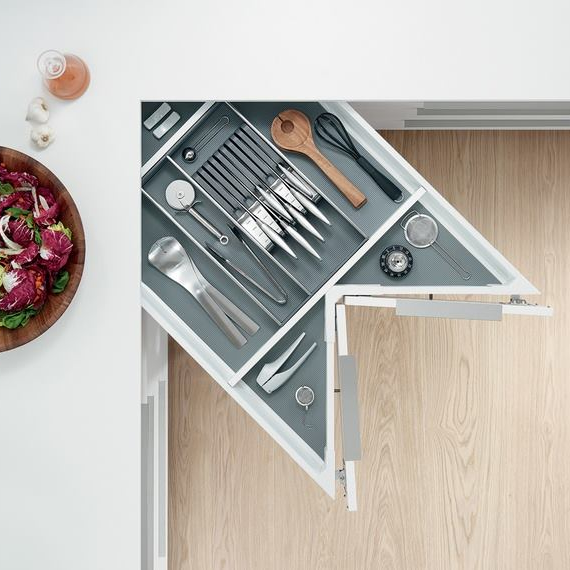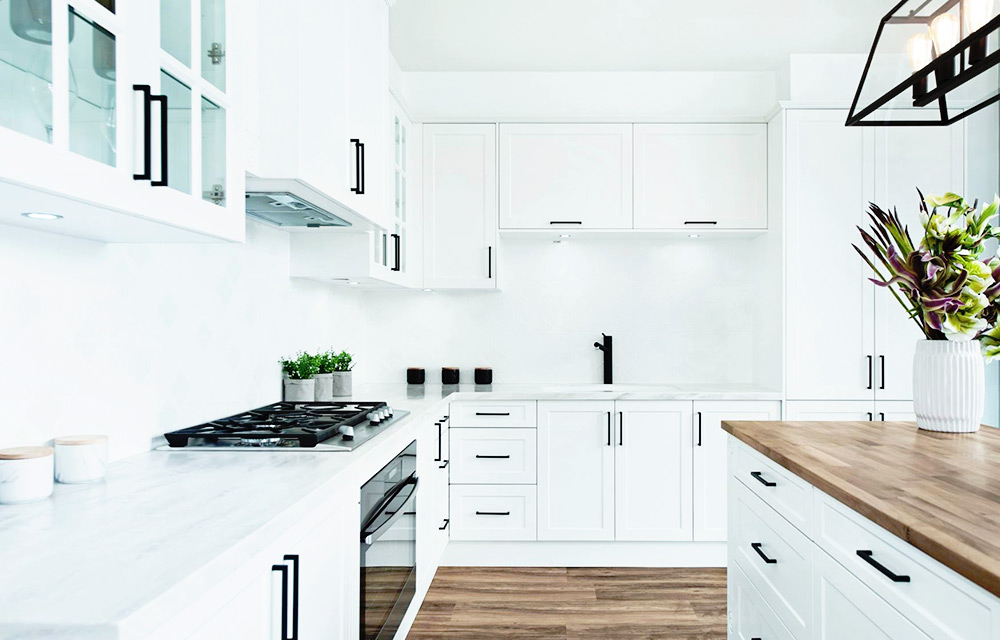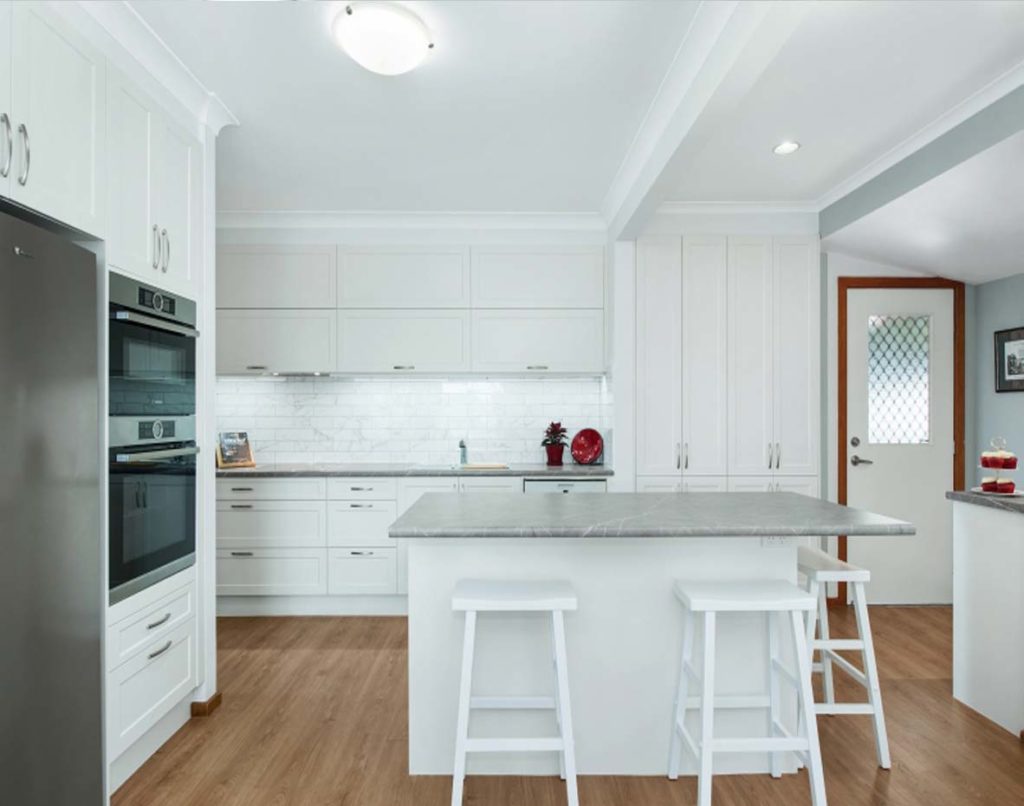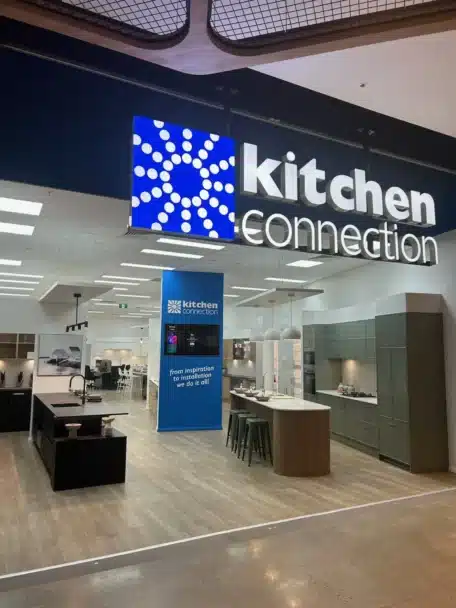Undertaking a kitchen renovation is a significant investment in your home, and proper planning is crucial to ensure you get the results you desire. Here are eight essential considerations to address before embarking on your kitchen renovation:
1. Understand the kitchen triangle – but don’t be confined by it
While the traditional kitchen work triangle—connecting the cooktop, sink, and refrigerator—is a valuable guideline, modern kitchens have diverse uses and may benefit from customized layouts.
Think about how you intend to use your kitchen, create a list of functional requirements, and collaborate with a kitchen designer to develop an efficient, tailored layout.

Modern kitchens are used for a variety of purposes though, so stepping outside of the triangle and customising your layout to suit how you want to use your kitchen is now not taboo. Entertainers as an example may want a second dishwasher in their butler’s pantry or larger families might like to introduce a second sink.
Think instead about how you wish to use the space, write a list of the functional things you would like your kitchen to do for you and discuss how you want the kitchen to relate to other areas in the house with your kitchen designer to customise an efficient layout for your home.
2. Consider your surfaces
Explore a wide range of surface options, from timber and stone to concrete and glass. Consider how different surfaces complement the overall design and functionality of your kitchen, as surfaces can impact lighting, acoustics, and the atmosphere within your home.
3. Plan your appliances around your lifestyle
Modern appliances offer a variety of features, from self-cleaning capabilities to eco-friendly settings. Align your choice of appliances with your lifestyle and needs. For instance, cooking enthusiasts may opt for advanced ovens, while eco-conscious homeowners may prefer sustainable appliances.
The budget allocation for appliances can vary significantly, depending on your requirements. The average kitchen renovator allows 20% of their budget for appliances but for a home cook or a homeowner committed to complete sustainability, you could be interested in investing more.
4. Get clever with storage
Effective storage solutions are essential for maintaining a clutter-free kitchen. Explore vertical storage options, appliance nooks, pantry drawers, and corner drawer solutions to make the most of available space while ensuring ease of access to your kitchen items

5. Understand the principles of lighting
Proper lighting design is vital for a functional kitchen. Avoid hotspots and shadows by integrating ambient, task, and accent lighting. Tailor your lighting plan to suit your kitchen’s size and layout, ensuring even illumination and visual interest.
Accent lighting can be used to create visual interest in your room. Perhaps you wish to draw the eye to your splashback, artwork in your kitchen or the height of your kitchen ceiling.
Consider how you will use lighting in your space and consult with a professional to ensure your lighting plan is right for the size and height of your area.
6. Don’t forget your flooring
Flooring can significantly impact your kitchen renovation budget. Address this aspect during the planning stage to avoid unforeseen expenses. Consider how your kitchen flooring harmonises with the rest of your home, especially if it requires updating.

If your existing kitchen is on tiles or a dated floor, you will need to look at updating the flooring as part of your kitchen renovation. Again, the look of the kitchen must be consistent with the remainder of your home so that could indeed mean re-flooring more than the one area in your home.
There are a range of flooring options available to homeowners these days so be sure to look at an option that can withstand the test of time and the foot traffic your kitchen will inevitably attract.
For more tips on selecting the right flooring for your home, read our blog “Key Criteria for Kitchen Flooring”.
7. Be realistic with your budget
Plan your budget carefully, aiming to allocate between 4-6% of your property’s value to the renovation. Allow for contingencies to address unforeseen challenges or delays. Ensure your budget encompasses trades, appliances, flooring, lighting, cabinets, and fittings.
8. It’s Gonna Get Messy
Kitchen renovations can be messy, impacting your daily routine. Plan for the installation week by considering issues like waste disposal, protecting floors and furniture, and meal preparation. Having a contingency plan in place will reduce stress during the renovation.
By addressing these eight essential considerations, you can embark on your kitchen renovation with confidence, ensuring a successful and stress-free project that aligns with your vision and budget.


